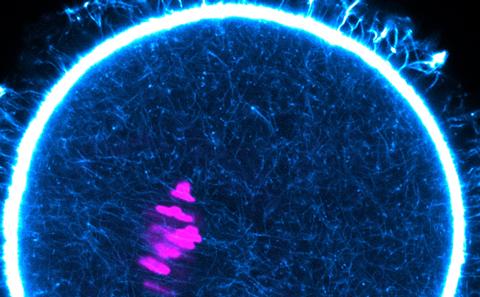Actin-dependent mechanisms of chromosome segregation in mouse oocytes and the early mouse embryo Event

- Time:
- 13:00
- Date:
- 20 June 2018
- Venue:
- Nuffield Theatre Building 6, Room 1081
For more information regarding this event, please telephone Maria Hilliard on 02380594728 or email M.Hilliard@soton.ac.uk .
Event details
Chromosome segregation is conserved throughout eukaryotes – all eukaryotic cells divide by assembling a spindle machinery from microtubules. In oocytes, a specialised form of cell division called meiosis segregates the chromosomes. Chromosome segregation errors are remarkably high in oocytes and give rise to aneuploidy, a leading cause of embryo deaths – it accounts for nearly 35% of miscarriages. When compatible with life, aneuploidy in embryos frequently leads to genetic disorders such as Down’s syndrome, which affects about 1 in 1,100 live births worldwide. A major goal of our research is to understand the mechanisms that safeguard accurate chromosome segregation in mammalian oocytes for successful fertilisation and healthy embryogenesis. We recently showed that a unique mechanism underpins chromosome segregation in mammalian eggs: actin filaments that are organised in the form of a spindle promote accurate chromosome segregation by bundling spindle microtubules into functional kinetochore-fibres. We are now combining powerful protein degradation techniques with advanced live cell imaging and biochemical reconstitution assays to understand functional actinmicrotubule interactions that prevent aneuploidy in oocytes of several species including humans.
Speaker information
Dr Binyam Mogessie,University of Bristol,School of biochemistry, Faculty of Biomedical Sciences